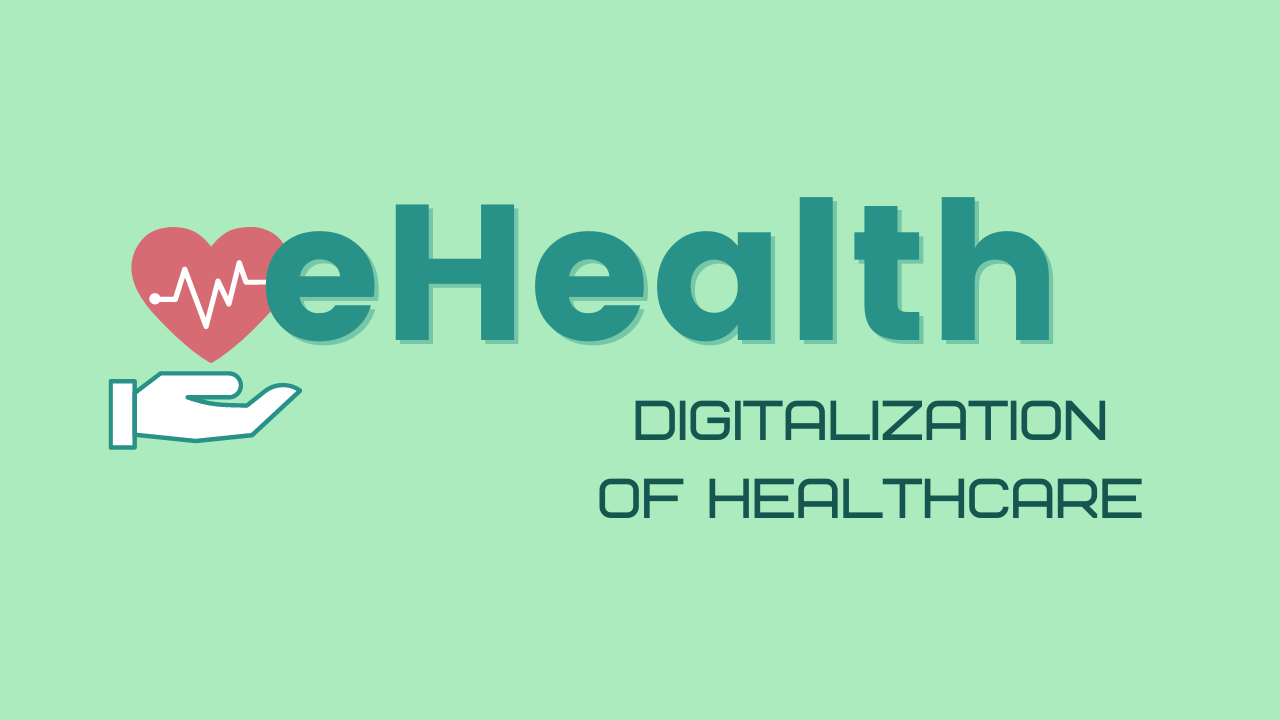eHealth
eHealth
Blog Article
eHealth
Overview
eHealth, also called digital well being or Health care engineering, refers back to the utilization of Digital communication and knowledge technologies during the healthcare field. It encompasses an array of systems and applications aimed toward improving the effectiveness, success, and top quality of Health care delivery.
Goals of eHealth
The most crucial objectives of eHealth might be summarized as follows:
Enhanced Access to Healthcare: By leveraging electronic systems such as telemedicine and remote client checking, eHealth aims to improve entry to Health care products and services for individuals living in remote parts or with limited mobility.
Enhanced Good quality of Treatment: Through resources like electronic wellbeing documents (EHRs) and clinical choice help devices (CDSS), eHealth seeks to improve the standard of treatment by facilitating exact and well timed information exchange amongst healthcare specialists.
Individual Empowerment: By giving people with usage of their professional medical documents, individualized health applications, and online instructional means, eHealth empowers people today to take an Lively role in running their own well being.
Cost Performance: Employing electronic platforms can assist minimize administrative fees connected with paper-primarily based systems while enabling economical coordination involving diverse stakeholders inside the Health care ecosystem.
Critical Apps of eHealth
A number of key purposes lead to attaining the objectives outlined higher than:
Electronic Well being Documents (EHRs):
EHRs are digital variations of clients' health-related records that could be very easily accessed by licensed healthcare providers linked to a individual's care. They supply a comprehensive look at of a client's health-related record, lab benefits, medications prescribed, allergic reactions, along with other applicable medical details.
Telemedicine:
Telemedicine requires offering healthcare remotely by way of video conferencing or cell phone calls. It allows Medical practitioners to consult with sufferers who cannot physically take a look at hospitals or clinics because of geographical constraints or mobility troubles.
Cell Well being (mHealth) Apps:
mHealth applications are smartphone purposes that offer a variety of Health care services, including tracking crucial signals, reminding patients to get prescription drugs, furnishing access to well being schooling elements, and facilitating interaction with Health care vendors.
Remote Patient Monitoring (RPM):
RPM permits healthcare pros to watch a client's crucial symptoms together with other health and fitness parameters remotely using wearable devices or sensors. This enables early detection of health issues and well timed interventions.
Health Information Trade (HIE):
HIE will involve the protected sharing of client facts throughout diverse healthcare companies, ensuring seamless coordination and continuity of treatment concerning suppliers in numerous settings.
Scientific Conclusion Guidance Programs (CDSS):
CDSS leverage artificial intelligence algorithms to analyze medical details and support healthcare experts in making proof-based mostly choices regarding analysis, treatment method programs, drug interactions, and much more.
Health Wearables:
These are definitely wearable units like fitness trackers or smartwatches which can acquire physiological data on somebody's workout more info routines, coronary heart fee patterns, snooze high quality, plus more.
Advantages of eHealth
The adoption of eHealth offers various Advantages for both of those folks and the general healthcare process:
Improved Effectiveness: eHealth streamlines administrative tasks by minimizing paperwork and enabling the Digital Trade of knowledge between stakeholders involved in client treatment.
Enhanced Interaction: Electronic wellness applications facilitate powerful interaction in between sufferers as well as their healthcare companies when also advertising collaboration amid distinctive specialists associated with a client's treatment strategy.
Use of Specialized Care: Telemedicine lets people residing in remote locations or underserved communities to consult with specialist Physicians who might not be bodily existing nearby.
Timely Interventions: Via remote monitoring programs or cellular applications that present alerts or reminders for medication adherence or follow-up appointments, eHealth assists avoid issues by facilitating early interventions.
Enhanced Client Results: By giving effortless usage of medical info on-line in addition to customized wellness assistance, eHealth empowers sufferers to actively interact in their particular healthcare and handle chronic conditions effectively.
Difficulties and Worries
Although the implementation of eHealth comes along with quite a few Positive aspects, Furthermore, it provides challenges and concerns that should be resolved:
Privacy and Stability: Shielding individual information from unauthorized obtain is a big problem within the electronic overall health landscape. Robust stability actions, compliant with related privateness laws, must be carried out to make certain data confidentiality.
Interoperability: Unique healthcare devices and programs may well not constantly seamlessly talk to each other due to deficiency of interoperability requirements. Making certain economical exchange of data across platforms is important for complete client care.
Digital Divide: Not Anyone has equal use of electronic technologies or possesses the required electronic literacy expertise expected for utilizing eHealth instruments effectively. Bridging the digital divide will become essential to make certain equitable usage of Health care providers.
Regulatory Compliance: The dynamic character of technology usually surpasses current regulatory frameworks. To totally leverage the key benefits of eHealth even though safeguarding affected individual legal rights, laws want to keep tempo with technological enhancements without stifling innovation.
Conclusion
eHealth plays a pivotal function in modernizing healthcare shipping and delivery by harnessing know-how for enhanced obtain, quality of treatment, patient empowerment, and cost efficiency. The widespread adoption of electronic communication tools, telemedicine solutions, mobile well being apps, remote checking units, and other revolutionary options contributes in the direction of a more related and affected individual-centered method of healthcare provision. Even so, addressing issues linked to privacy protection, interoperability standards compliance bridging inequality gaps in internet accessibility are vital ways towards reaching the full opportunity of eHealth.
